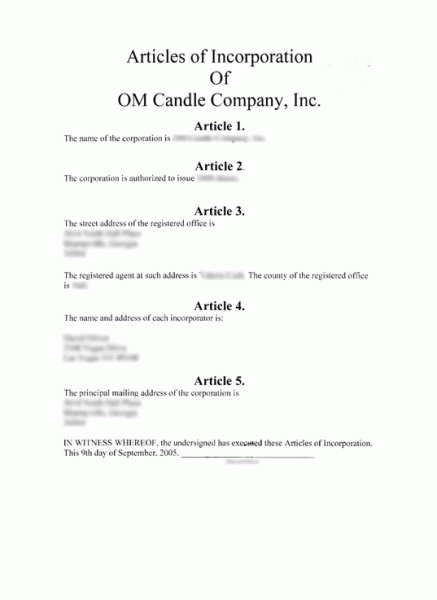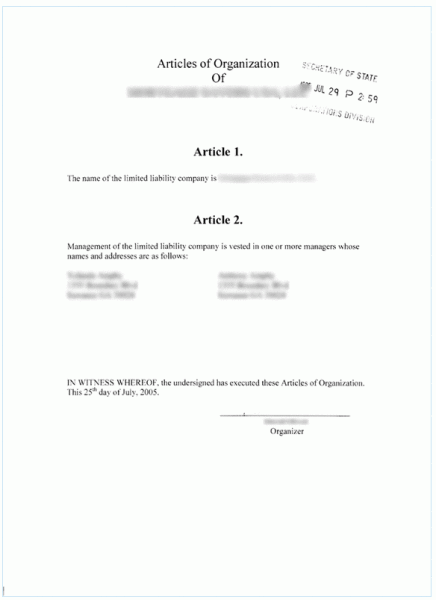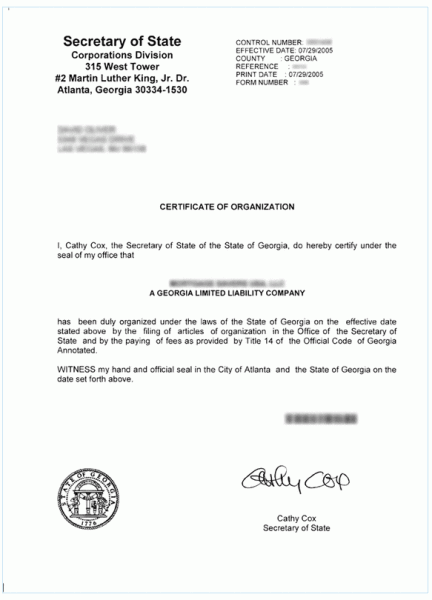Are you wondering if incorporating in Georgia is the right business decision? According to a survey by Development Counselors International (DCI); the business climate of Georgia ranks 3rd in the nation. The survey also ranked the state No. 1 in having the best state economic development organization. Georgia has a workforce of over 6.3 million that existing and newly formed business entities can leverage. , As if this were not enough, businesses can also access global markets through seamless sea, air, rail, and road networks including the fastest growing container seaport at Port of Savannah.
Why Choose Georgia for Incorporation?
Why is company incorporation in Georgia amongst the highest in the nation? There are several advantages and benefits that business entities can derive in the state, which makes incorporation a profitable proposition.
According to reports by U.S Small Business Administration (SBA), the number of small businesses has increased in industries including Wholesale Trade, Manufacturing, Professional, Scientific, and Technical Services, Accommodation and Food Services, Educational Services, Arts, Entertainment, and Recreation, and Construction among others. Here’s a Year over year (YOY) data for small businesses in Georgia:
- 2017 – Number of Small Businesses: 1 million – Employment Created: 73,251 – Trade: 12,667
- 2016 – Number of Small Businesses: 1 million – Employment Created: 41,287 – Trade: 88.5%
- 2015 – Number of Small Businesses: 982,112 – Employment Created: 38,868 – Trade: 88.8%
Now let’s take a look at some of the salient benefits that are responsible for fueling growth of small businesses:
Georgia Opportunity Zones
If you set up a company in Georgia especially in the enterprise zones as mentioned in the Enterprise Zone Employment Act then the business entity will be able to benefit from:
- Tax exemption on local property under section 36-88-8(a)(1) of the Act
- Reduction or abatement in occupation taxes, building inspection fees, etc., pursuant to OCGA §36-88-9(a)
You can check the list of cities with enterprise zones by clicking here.
Business Incentives
One of the advantages of incorporation in Georgia is the fact that your business entity can leverage a multitude of business incentives being offered by the Georgia Department of Economic Development. Some of the popular programs include:
- Corporate Tax Credits: When you set up a company in Georgia, you can benefit from a range of corporate tax credits, which are aimed at enabling business entities to minimize or even completely eliminate the state based corporate income tax.
- Work Opportunity Tax Credit Program (WOTC): The WOTC program is a federal tax credit incentive that is being facilitated in the state through the Georgia Department of Labor (GDOL). A business entity can get a tax credit between $1,200 and $9,000 per qualified employee recruited.
How do you incorporate in Georgia?
Now that you have decided to set up a company in Georgia, how does the process of incorporation work? What forms and other documentation are required and where do you submit them? These are some of the common questions that you will be confronted with if you are new to the state. Let’s look at the process of incorporation in Georgia:
Business Type
You can form different types of businesses in Georgia and these include Limited Liability Company (LLC), Profit and Non-Profit Corporation, Sole Proprietorship, General Partnership (GP), and Limited Partnership (LP). The first step towards incorporation in Georgia is choosing the type of business you want to form. Business corporations can be classified under domestic and foreign corporations. Know more
Business Entity Name
What is the next step towards company incorporation in Georgia? The next step is to identify and reserve a name and this is done as follows:
- Naming Requirements: According to O.C.G.A. 14-2-401 (2010), a corporate name should contain the words “incorporated,” “corporation,” or abbreviations like “inc.,” “corp.,” etc.
- Business name search: You need to search for a business name that is not in use currently. You can conduct name search here.
- Name Reservation: Once you have identified business entity name, you can reserve the name with the Secretary of State pursuant to O.C.G.A. 14-2-402 (2010). Name reservations are valid for 30 days or until the business entity files the Articles of Incorporation.
Choose a Registered Agent
According to O.C.G.A. 14-2-501 (2010), a Corporation in the state of Georgia needs to maintain a registered agent. We are one of the respected registered agents in Georgia and will be responsible for initiating incorporation in Georgia by processing of your “Articles of Incorporation” for domestic corporations and “Certificate of Authority” for foreign corporations.
Articles of Incorporation and Certificate of Authority
You will be required to submit “Articles of Incorporation” if your business is a domestic corporation and a “Certificate of Authority” if it is a foreign business entity pursuant to Official Code of Georgia Annotated (O.C.G.A.) 14-2-202 (2010). In order to streamline the process of incorporation in Georgia, we can file documents on your behalf through the online process or through expedited process.
Date Stamped Copies
As a part of the process of company incorporation in Georgia, we will ensure, you receive date-stamped and filed copies that verifies the state has filed as well as formed your corporation.
Costs and Fees associated with Georgia Incorporation
What would it cost to set up company in Georgia? Check Fees here!
Order LLC now Order INC now
 702-871-8678
702-871-8678



